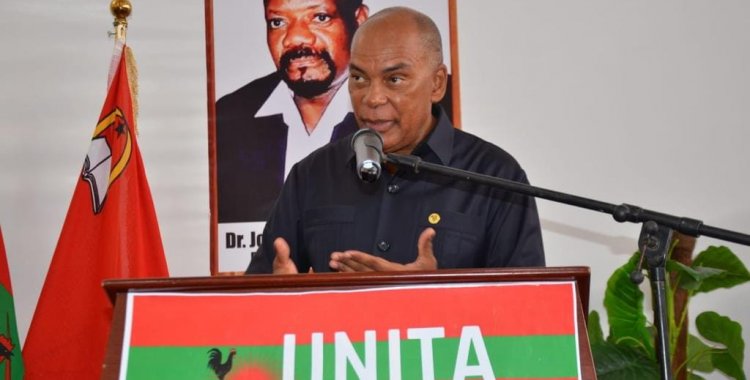Adalberto Costa Júnior, who visited Cabinda at the beginning of the month, choosing this province to mark the start of the political year of the "Galo Negro" party, spoke to Lusa about the initiative to present an autonomy proposal to the National Assembly.
"Cabinda has a nationalism, its own culture and it is necessary to recognize it", highlighted the politician, remembering that UNITA's governance program presented in the last general elections, in 2022, already enshrined a solution for an approach to Cabinda that went through autonomy.
During his stay in Cabinda, during which he spoke with groups of activists and members of civil society, he acknowledged having been criticized "very harshly" for having "offered" what he understood to be a solution, instead of negotiating it.
"We must always negotiate, this statute is not a statute that is imposed", he declared to Lusa, adding that the autonomy proposal must be negotiated with the various Cabindan interlocutors.
"In order to negotiate, it is necessary, first of all, to guarantee the conditions for dialogue", he continued, saying that, even in situations of war, "there is always an open door to negotiate its end".
"We think it is easy to reach this approach, an element of dialogue. We have managed to do it, why doesn't the Government do it?", he asked, reinforcing that UNITA wants to sit at the table with Cabindans who bring "your ideas".
Adalberto Costa Júnior, who was invited, during the visit, by the independence movement FLEC-FAC (Front for the Liberation of the Enclave of Cabinda - Armed Forces of Cabinda), to meet with the guerrillas, said that the invitation did not reach him through the formal channels, but he added that there have been direct contacts.
"FLEC has been able to make contacts with UNITA (...). FLEC is well aware of UNITA's positions", he stressed, adding that negotiations should be made "with those who have some representation", including guerrilla movements.
"Imagine that the extremist pole represents a majority of the populations, of the communities. It refuses to sit down with those who have effective representation? It's nonsense", he commented, stating that the Angolan Government has "the conditions to know who represents what".
On the other hand, "the approach should never be the baton, it should be dialogue", said Costa Júnior, regretting the fact that he found activists, including pregnant women, in jail.
"It is necessary to change the approach within a framework of respect for the human rights and civic rights of citizens. Cabinda is part of Angola and we have a Constitution that guarantees these rights", appealed the president of UNITA.
For Adalberto Costa Júnior, "there is a very superficial approach" to the Cabinda issue.
"I would even say irresponsible, because there are deaths, because there is no absolute stability, because there is a permanent military occupation in an Angola whose military peace was achieved so long ago. It really is a lack of sensitivity", he criticized.
The UNITA leader defended that a statute of autonomy "negotiated with balance was the ideal solution", with sharing of the benefits of that province's wealth, namely oil.
"It would be a complement to closing the political steps with a flourish" and would allow "to return to Cabinda the dignity it deserves", he said, also suggesting the need to "be sensitive to historical factors" in this negotiation.
Adalberto Costa Júnior criticized the Angolan Government for "sitting at the table" and then "discontinuing" compliance with signed agreements, which happened with the Cabindês Forum for Dialogue (FCD), but also with UNITA itself in the post-war period, and insisted on the sharing of wealth.
"We cannot think that it is possible to be taking from Cabinda a substantial percentage of what is the support of the General Budget of the State of Angola [oil] and there is no retribution and today we have a very poor community", he noted.
As for the autonomy proposal, which still has no deadline, it should not be dissociated from the proposal to revise the Constitution, which brings some pressing points to Angola, from the perspective of the President of the Republic.
Lusa attempted to interview the governor of Cabinda province, Mara Quiosa, but did not receive a response in a timely manner.







